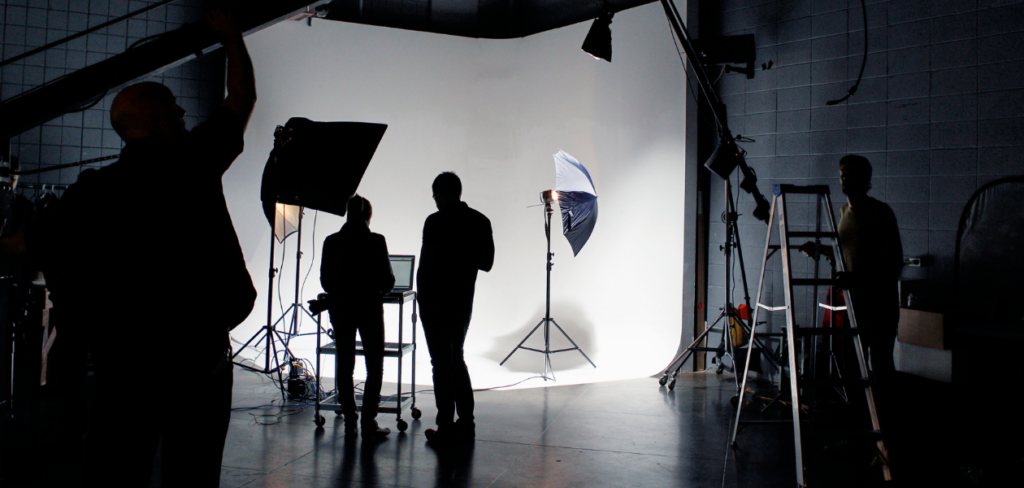
Side Hustles For Actors
So you have started acting. This is it! You’re gonna be a damn millionaire: starring in feature films, touring the world for press—hell yeah, you’re living the dream! Literally, the dream. Waking up from that dream can bring you to the stark reality that, well, acting isn’t exactly filled with much financial gain. Especially if you’re just starting out. If you haven’t come to that realisation yet, and this is the first time you’re learning that acting isn’t a get rich quick scheme: I hate to break it to you, but Santa Claus isn’t real either. Rough.
So, what’s an actor gotta do? Hustle.
In this article, we’re going to look at the perfect side hustles for actors. There will be a few classics on here (probably some you’ve already pursued if you’re not doing them already), as well as some extra jobs you may not even have considered before. Whatever your path, the trick with side hustles for actors is to keep you fed, healthy and comfy while allowing you the flexibility and freedom to keep your career chugging along.
Hustle is one of those productivity buzzwords that seems to be thrown around a lot recently, along with “grind.” If you’re old like I am, and don’t understand this hip (not really), new lingo, I’ll try and break it down for you.
What exactly is a “Hustle”?
Let’s throw-back-Thursday this term and look at the original definition. According to our good friend the Oxford English Dictionary, hustle comes from the Dutch word “husslen” (which is a great word). It means “to shake or toss.” Later on, it evolved to mean “to hurry” or “to obtain by begging.” And just before its most recent reinvention, it meant to scam, or bamboozle somebody.
In its current form, “hustle” has evolved again to refer to a secondary goal/job/income that aids or funds your primary goal. A “hustle” isn’t your main means of supporting yourself, it’s more like a short-cut, a hack, a way to shake things up. Funny how the original meaning still echoes through.
“But Sam!” I hear you all say, “That still just sounds like a job!”
Well, yes. Despite what it says on the box, some hustles take considerable effort to find and maintain. They might take more effort than their peppy definition suggests. But there are some important distinctions.
“Jobs” Versus “Side Hustle”
For the sake of clarity in this article, let me propose two definitions:
- Job: a typical means of making money. Where someone employs you on a semi-regular basis (stacking shelves, bartending, barista).
- Side hustle: a way to make money that may be unconventional, inconsistent, and requires outside-of-the-box thinking.
A job and side hustle may be an identical activity. You might work in an office during the day, and then stack shelves or bar tend in the evening twice a week. Alternatively, your side hustle might become grow into your main source of income. (However, don’t plan for this, as it usually requires you to input the time and sacrifice the freedom that made it an ideal side hustle in the first place.)
The difference in the definition, therefore, comes down to the freedom and flexibility the activity allows you. A side hustle is not something you pursue as your main revenue stream, it’s a supplement to your income that helps you achieve smaller goals: say, some self-tape equipment or paying for an acting class. You’ll run yourself into the ground turning seven side-hustles into what you’ll get from one steady job.
And one quick note before we go on:
I am, in no way, a financial advisor—no more than anybody else on the StageMilk team. We are a company that tries its best to support actors, writers, and creatives in general with our own knowledge and experience. We will never give you financial advice (in fact, don’t ever ask an actor about making money, have you met one?!) What we can offer up are some ideas and support on what you can do to make your path a little easier.
Jobs For an Actor’s Lifestyle
Lets start by looking at jobs. In this list (and the one for hustles below it), I’m first going to assume that your primary goal is your acting career, and you’re looking for the kind of work that will best support pursuing this goal. You might notice that these jobs still offer up some flexibility for things like last-minute auditions or bit-work here and there. It’s probably not advisable for you to be a heart surgeon if you have to disappear on your patients for six months to film a quick MCU entry.
Hospitality
I’ll start with the most obvious one. There you are: clearing tables, taking orders, trying to make connections while balancing your acting life. There’s a reason that, in every TV show or movie ever, the struggling actor works in some sort of café/bar/restaurant. This is because hospitality work is the most accessible—and usually the most flexible—job to have. If a place is open for breakfast, lunch and dinner, that would be my first pick. Why? So that you have plenty of flexibility in your shift choice. Got an audition in the morning? Work at night! Have a night shoot? Work in the day. Depending on where you are, too, it can be a great place to make connections. The trendier the place is, the better.
Pros
- Great industry to meet people in (make friends, connections, etc.)
- Tips!
- Flexible hours and rosters.
- Very social environments.
- Can be a lot of fun.
Cons
- The work can be overwhelmingly busy at times.
- Potentially poor hourly rate (depending on the country).
- Always on your feet, with long days and nights.
- If you work somewhere with alcohol, drinking culture can be disagreeable with some people, including dealing with drunk patrons.
Work on a Film Set

So your goal is to make a living in the film industry? Well, what if I told you that to get in front of the camera, you might need to get behind it. There are many different entry level jobs available on a film/TV set. They may not be the glamorous life of a movie star, but these jobs are just as important. Each job on set contributes and aids the great machine in some way. Some jobs include:
- PA (personal assistant/production assistant).
- Runner (you run around and do menial jobs).
- Driver (like a runner, but you drive).
- Locations assistant (you stand on the outskirts and make sure civilians don’t ruin the shots, which they definitely will try and do).
Pros
- If you are good to work with, you will get a lot of hours.
- You get to learn about how film sets work, all while getting paid.
- Great way to covertly make connections (and I don’t mean asking the director for a job or any of that nonsense, I mean making work friends).
- You get fed on set. Yay for free food!
Cons
- If you are good to work with, you will get a lot of hours.
- Very time consuming, and can detract from your actual goal—acting.
- The jobs are usually contractual, which means that after the shoot is wrapped, you’ll have to find another job (or hustle).
- If you are very good to work with, production companies are sometimes unwilling to let you go (not a kidnapping situation, more that they’d rather employ you as a script coordinator than an actor, because, well, there’s a tonne of them out there).
Retail
I started working in retail when I was 13, and got out when I turned 23. It was a wild time with some pretty significant ups and downs. Over a decade in retail, my favourite places to work were places that had their own niche. For example, for a few years I worked at a game store. It was super fun and everyday I got to chat with people who had the same interests as me. The down side is that the smaller, niche places can be slow and therefore will lack the potential hours you need. Quite the conundrum. So where should you look for work?
Usually, the bigger the company the better. Why? Because the bigger the company, the busier the business. This means that they will have more demand for workers. Also, as an actor, being able to take time off last minute is super handy. If you work in a larger company with more employees, it means it’s easier for your shifts to get covered. If you have a supermarket chain or a busy convenience store near by, that would be the first place I’d look.
Pros:
- Regular work.
- Casual environment.
- The satisfaction of customer service (if you’re that kind of person).
- Potentially working somewhere in a niche you are passionate about.
Cons
- Rude customers.
- Varying pay.
- Monotonous work/can be boring.
Side Hustles for Actors
When it comes to side hustles for actors, the best place to start is to think about your skills. Even your mundane ones. We live in a great day and age where there is a niche market for almost anything. If you have a skill or knowledge in something, it may be worth brushing up on that skill and using it to make a bit of money.
Did you previously play an instrument? Maybe brush up on that and start giving lessons. You took a coding class in college that you haven’t used since? Brush up on that and freelance. I’ll give more specifics down below, but start thinking about what skills you can bring to the table. If you feel like you don’t have any skills to bring to the table, that’s okay. The bright side is there’s plenty of niches out there you can learn.
Do remember: if you end up spending more time on your side hustles than on your acting that you are trying to support, take a step back and re-evaluate what you main goal is. Remember to keep the Main Thing the main thing.
Note: The side hustles I am going to list have essentially zero risk to them. There are plenty of side hustles out there that are great, that I haven’t mentioned here, because they involve some financial risk. There’s nothing inherently wrong with these kinds of side hustles, but anything that involves investing in something physical will always come with some sort of financial risk. So I left them out. Keep in mind though, all side hustles cost you time, and a bit of hard work.
Freelance Work

As an actor who also freelances, I thought I would start here. Freelancing is like regular work, but if regular work was set in the “Wild, Wild West.” I joke, of course, but it feels like that sometimes. It’s an unruly place with little to no rules. In some ways, being a true freelancer is exactly what we told you not to do earlier in this article: turning a series of little jobs into bigger ones, juggling a lot of balls with little guarantee of long-term stability.
The name of the game when it comes to freelancing, is value. What skills can you offer someone, to the point where you are comfortable enough for them to pay you for it? I am assuming (hoping) you did the activity earlier and thought about what skills you have that you can monetise.
Here’s a list for some ideas to get you started:
- Writer: anything from articles, to ghost writing fiction, to blog posts.
- Editor/Proof-reader: this can be a full time profession with the right credentials, however most contractors or freelance websites are usually looking for someone who can just point out obvious mistakes.
- Video Editor: most people don’t enjoy editing. It is a gruelling task at times. This is good for you, though, because it means that the skill is in high demand.
- Coding: similar to video editing, it is not a particularly fun job for the Average Joe, so if you become adept at it, you’ll have a pretty valuable skill.
- Web designer: another great skill to have, always in high demand.
- Photography: look into learning how to do headshots if you’re an actor.
- Teaching: know how to paint, or play an instrument? Get out there and help others learn.
- Graphic design: anything from logos, to game art, to prints.
The more interested you are in the skill, the more passionate you will be about learning it and, by extension, the more likely you will stick to it. If you’re looking for places to sell your work, start with family and fiends. Help someone out to get some experience and momentum going. Teach your next door neighbour the guitar, help your friend to build a website, then once you’ve got the hang of it, get out there and sell your skills. There are some great websites out there such as Upwork, however joining relevant Facebook groups, posting on community post-boards and word of mouth are usually how you get the best clients. So sharpen those skills and put yourself out there!
Pros
- Freedom of work schedule and ultimate flexibility for your acting lifestyle.
- Set your own rate.
- You get to learn new skills.
- Work from home, or anywhere.
Cons
- Balancing deadlines into your life.
- Work can be inconsistent and no guarantee of work hours.
- No real seller protection.
Selling Digital Products
Are you an artiste? Perhaps you can graphic design like a modern Picasso? Or a musician who can write and transpose music? Selling digital products online might be the side hustle for you. Overall, it is debatably the easiest to start, as well as the cheapest. Using websites like Etsy, Design Crowd, Sellfy, and Amazon (although I would make sure having your product ready to go and sell before you sign up). All of this can apply to selling physical products, too, such as paintings, portraits, crochet art, woodwork, commissions of any sort—the limit is your imagination. I personally make daily planners on Canva (for free) and sell them online. It’s good fun, and easy.
Pros
- Once your product is up, all your revenue becomes passive income.
- Making stuff is fun!
- No time restrictions or deadlines.
- Easy to set up.
Cons
- No guarantee your stuff will sell.
Delivery
Have you ever been stranded somewhere and needed a lift? Perhaps, on nights after work where you couldn’t be bothered cooking, you decided to get some takeout? Well, you could be one of those awesome people that helped you out! There have never been so many options for delivery work. Becoming a driver for apps like Uber is easier than ever. The flexible nature of the work leaves you (an aspiring actor) with plenty of freedom to do projects and go to auditions.
Pros
- Flexible work times (and freedom.)
- Easy to get started (for delivery, all you need is a bike.)
- Work as much or little as you need.
Cons
- Driver services take a cut.
- Potential high cost to start (either need a car, bike, or scooter.)
- Potential unsavoury customers (especially in party districts.)
- Traffic.
Blogs
I know what you’re thinking: “Sam! What is this? 2012?!”
I get it. Blogs may seem less prominent since the boom of social media but in reality they are as popular as ever. After all, you’re reading one right now. Like a lot of side hustles (or jobs), it can be a little slow to start with, but once you get going you can promote products, services, people, art, run ads promoting your friends, and more! The best part is that it’s all yours, so you can promote and advertise whatever is aligned with your values. If there’s a niche you are interested in, write about it! That way when you start off and it is potentially slow, it’ll still be fun for you.
Pros
- Freedom
- It’s fun (especially if you’re writing something you are passionate about).
- No cap on potential growth.
- Very limited cost.
Cons
- Slow to start.
- Takes some free labour to get it off the ground
Starting a Podcast
Much like a blog, a podcast is a relatively easy thing to create these days. They wouldn’t be first on my list of ways to make a buck, but they can be an incredibly helpful way of building an audience and some brand recognition around you, the actor. The trick with a podcast is to find your niche: think about what you can speak on that nobody else can. Sure, you’re an actor who loves movies. So are a bunch of other podcasters. What if your podcast is all about movies that got you and your fellow actors thinking about acting? Wait, that’s actually a good idea… hands off!
Pros
- Freedom.
- Lots of fun, especially when you work with others.
- Great networking and audience-building opportunity.
- Limited cost after initial equipment set-up.
Cons
- Not a money-maker to begin with.
- Requires constant work (consistency to build an audience.)
- You have to separate yourself from the pack.
Acting
Wait, what? Acting is a side hustle? Well yes, technically. Until it becomes your primary source of income, you could view it is a side hustle. So why mention it here? Because us actors (including myself) forget that. A great example is extra/body double work. Sometimes to make extra money, you must be the extra, literally. Extra work is perhaps the easiest money you will ever make. That is, if you don’t mind waiting around for hours on end and waking up before the sun.
Body double/stand-in work is a little more fun. You get to see the scenes up close and learn a lot about the process of making a film. You might even get to brush shoulders with some cool actors. Either way, they are both jobs that can pay pretty decently, and require no skills (except for listening.)
Pros
- Great way to make friends and connect with people like yourself.
- Requires no experience or previous skills.
- Lots of down time.
Cons
- Deferred payments (you might not get paid for 3-6 weeks after your day of shooting).
- Can be a little boring (so bring a book, or make friends!)
Character Jobs

Live close to any theme parks? Are you comfortable acting in front of children? Does scaring grown adults whilst dressed up in costume sound like a fun afternoon? If you said yes to any of these questions, maybe character work could be the hustle for you! “What is this grand scheme?” I hear you say. Well, it’s acting, but in a less formal sense. Have you ever seen Superman walking around a theme park? That’s a paid gig! You could work haunted houses (running up to nice patrons with a chainsaw) or even kid’s parties (where you should probably leave the chainsaw at home).
Not only do you get paid regularly for your acting abilities, but it also keeps your skills sharp. Part of the pressure of the job is to always be in character. If that challenge sounds rewarding to you, this could be the hustle for you.
Pros
- You get to do what you love, act!
- You get to bring joy to people as they see their favourite character come to life.
- Potential for regular, hourly pay.
- Great way to meet with people and connect/network.
Cons
- Kids can be cruel. Often, kids don’t realise that a whole-ass person is inside the suit…
- The costumes can be hot, the hours can be long.
Training/Coaching and using your acting skills to help others
Have you ever thought about teaching acting? Why the hell not?! There are few side hustles that use your skills so precisely, and it is stupidly rewarding to help people reach their creative goals. You can work with children/young people at most drama schools, or with adults doing short courses on things like audition prep and showreels. And like any industry-adjacent gig, there’s plenty of opportunities to network and make friends in your line of work. I can’t recommend this one enough.
Pros
- Usually pays quite well.
- Get to support theatre kids and teach them some important skills.
- Lots of fun, very rewarding.
Cons
- Work is usually limited to after-school/work hours and holidays.
- Teaching is a skill, it’s one you have to work on to get good.
Final Thoughts
So as you can see, there are plenty of extra ways to make some income that can support your acting. Isn’t that cool? Like I said earlier though, there is no “quick and easy” way to make money; everything will take time to grow and get off the ground. So be patient. This game is a marathon, not a sprint.
One last thought: be very careful about turning your hobbies into a business. It is often the quickest way for you to start losing joy in that particular activity, once the initial rush wears off. Remember that not all hobbies need to make money and be productive, and that you are allowed to enjoy things for the sake of joy and self expression. If you decide to monetise an interest or hobby only to find yourself losing joy in it (or it becomes stressful), it is okay to revert it back into being a hobby again. Just in case you were wondering where “How To Become a Twitch Streamer” was in the above paragraphs.
So what are you waiting for? Get hustlin’!

Leave a Reply